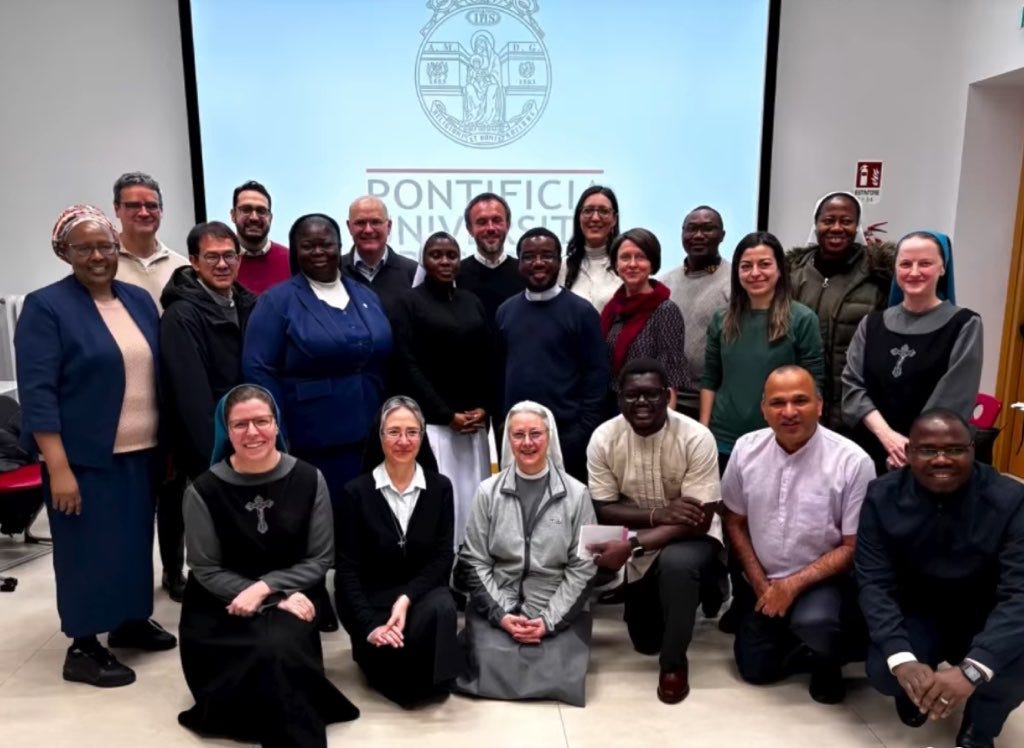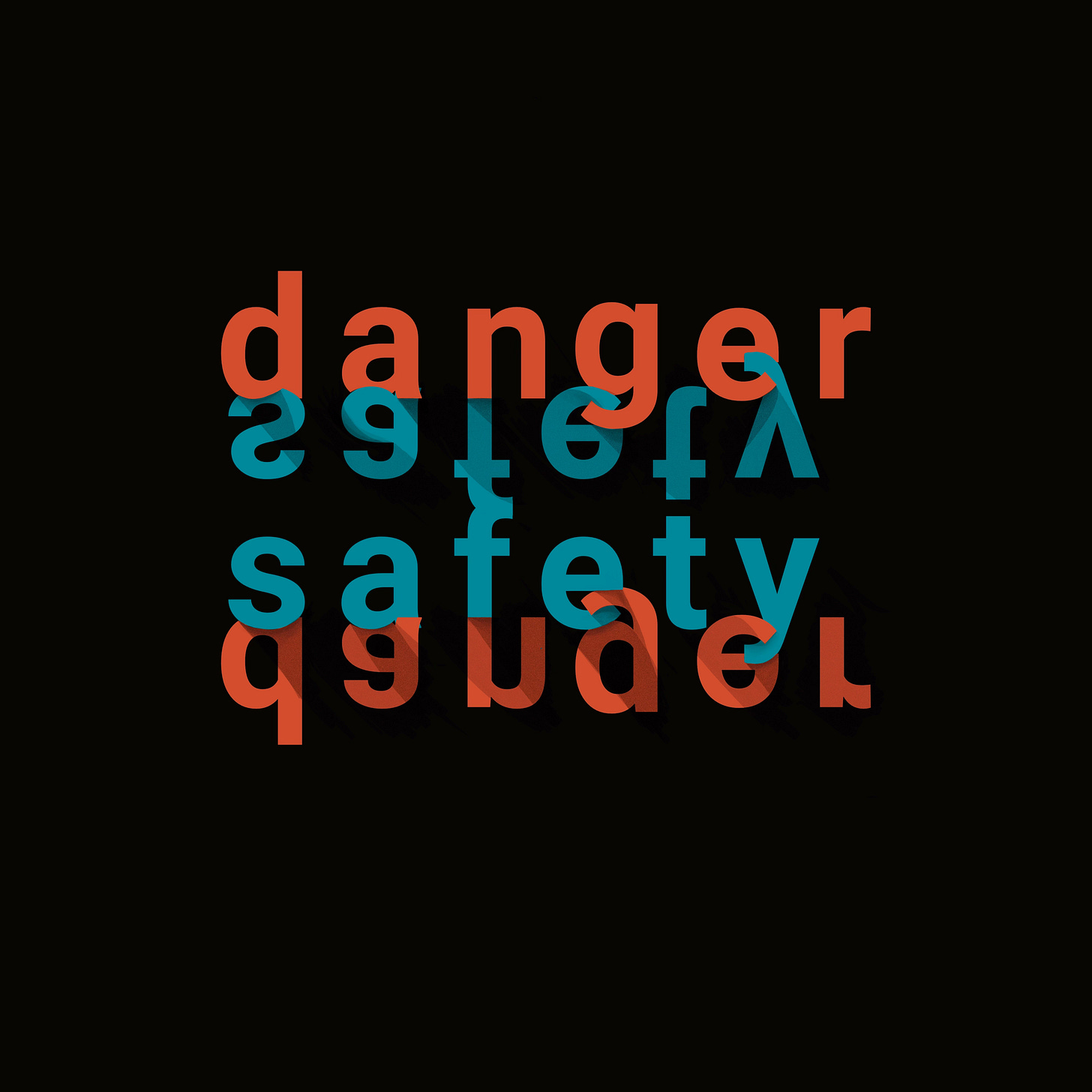Safeguarding: The Paradox of Safety and Danger
Our Diploma in Safeguarding course at the Gregorian in Rome nears an end and we are filled with gratitude. Non-programmatic and student-centered, this course was as personal and specific as the students and the many contexts from which we came. We were not offered simple answers or downloads of information to passively absorb; instead, we were encouraged to take personal responsibility and critically think about these issues within the Church.
We had wanted to share our ongoing thoughts about the course as we went along but we very quickly realized that this expectation was not realistic. So much in the course has challenged us and deserved our full attention as well as deep reflection. We needed silent time to consider all the themes we covered and we will continue to ponder all we have learned.
A Reflection on Safeguarding
As we wrap up our time here, we wanted to share about one term that has reshaped the way we understand abuse in the Church—safeguarding. Not as commonly used in the United States, this term has become a key term in the framework we have learned. At its core, safeguarding is exactly what it sounds like: it is about protecting our relationships from abusive interactions. One of the guiding principles in this area is often repeated in our class: safeguarded people create safeguarded spaces. In other words, if we try to foster an environment where everyone is protected and respected, it will naturally foster safe environments.
However, in practice, the concept of safeguarding can sometimes focus so heavily on the positive—on creating safe, “sanitized” environments—that it inadvertently overlooks or believes it can exclude danger. This can lead to an attitude that moves quickly beyond the negative effects of both ongoing and past abuse to focus simply on the ways we are succeeding in keeping people safe. But true safeguarding does not seek fast solutions and simplistic answers to eliminate danger; instead it does what it takes to repair, to restore, and to address root causes of abuse.
The paradox of safeguarding requires holding a tension between danger and safety. We cannot create safer environments unless we recognize dangers, both in our environments and within ourselves. Safe people and safe environments do not eliminate or sanitize danger but see danger with clear eyes. However, facing the dangerous reality and impact of abuse, especially our own complicity in it, can be immediately fatiguing. It’s easier to dissociate from the difficulty and magnitude of the issue. But the heart of safeguarding requires that we build the capacity to face the truth and the courage to go the extra distance. We believe that facing hard truths is the only way to fruitfulness amid the destruction of abuse in the Church. This fruitfulness can seem dangerous because it demands accountability, acknowledgement, and the ongoing work of repair and repentance. But our course in safeguarding has reaffirmed our conviction that we do not need to be afraid of the risks involved in this process.
Maybe the explosion we fear is actually a revelation of grace.
As this time draws to a close, we want to take this opportunity to thank each one of you. Not a day has gone by that we do not give thanks for all of our supporters who have materially and spiritually supported us in this journey. You made attending this course possible—and we look forward to sharing with you the fruits of this time as they unfold in our mission. We also are grateful to Fr. Hans Zollner, SJ for recommending that we attend this course and to our instructors who have given us a structure within which to think about our mission. Finally, we are grateful to our classmates from all over the world who have expanded our context and understanding of the issue of safeguarding and preventing abuse in the Church.
Perhaps the most valuable aspect of this course has been how our context has expanded. We have gained insight into a complex and multifaceted issue, not only within the Church but all around the world.
We now know what we do not know, to some degree at least. And that, in our opinion, is the most valuable kind of knowledge.
Send Us Your Prayer Intentions
We begin a short pilgrimage to France soon to visit sites related to some of our patron saints, Thérèse of Lisieux, Charles de Foucauld, and Joan of Arc. At the end of our pilgrimage, we will make our annual eight-day silent retreat at the Carmel of Flavignerot. If you have any prayer requests for our retreat, please send them via email or through our social media accounts.
We look forward to continuing to pray for you; please continue to pray for us.




It's interesting reading this right now. Someone gave me a copy of Emily Post's book of etiquette circa 1946. This reminded me of her chapter on secretaries traveling with their male bosses on business trips-- she recommended being VERY proactive as to figuring out lodging, situations you're expected to engage in, and how you'd react in a situation that begins to blur those lines, ahead of time.
I know that's not a complete answer, but it does seem like having those sort of societal expectations and cautions "built in" helps make an environment where it's more difficult for abusive grooming type behaviors to blend in and hide.
While visiting my Mom and Aunt in their apartment in an assisted living facility I needed to provide some feedback to a female staff member on a minor issue in a bathroom. I wanted to do this confidentially in a bathroom in my Mom's and Aunt's apartment so as not to embarrass them. I explained to the young female staff member that I'd like to show her the bathroom but that I'd like to partially close the door for some privacy, and I wanted to be sure that she'd be comfortable with that and if not we could get a second staff member to accompany us if she'd prefer that so she would not be out of view of others with me, an older male she barely knew. Perhaps this follows the idea of safeguarding? I've become more sensitive to this idea from our Diocesan training for volunteers and training received as a volunteer track and field coach form USA Track and Field.